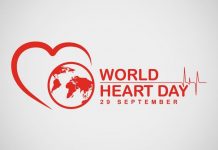The Holy month Ramadan 2021, which is set to begin on April 13 or 14 depending on the sighting of the moon, will see significant restrictions and Covid-19 safety measures. With the threat of the ongoing pandemic very much real, the goal this year is to avoid as many social gatherings as possible to help stop the spread of the virus among people.
The UAE has announced these Covid-19 rules and regulations applicable all across the country:
- Gatherings for family and friends must be avoided, especially during Iftar.
- Avoid distributing or exchanging meals with families, relatives or neighbours.
- Meals can only be shared between members of the family living in the same household.
- Setting up Iftar tents by families or institutions is banned.
- Iftar meals will not be allowed inside mosques.
- Restaurants are not allowed to distribute Iftar meals inside or in front of their premises.
- Iftar meals can be distributed only to labourers’ housing areas. Those interested in giving meal donations during this holy month will have to coordinate with the management of the accommodation and adhere to all Covid-19 guidelines.
- The elderly, especially those with co-morbidities, are urged to avoid all social gatherings and maintain social distancing.
- The special Taraweeh prayers can be hosted at mosques across the country under strict guidelines.
- All mosques must be disinfected before and after prayers.
- Avoid distributing physical copies of the Quran. People are advised only to read the digital versions.
- Inspection campaigns will be conducted during the Holy month of Ramadan to ensure compliance to guidelines. Legal action will be taken against violators.
- Masks are mandatory at all times when travelling outside the house.

Vaccines During Ramadan
Many Muslims have concerns about taking the the Covid-19 vaccine shots during the holy month due to the misconception that the vaccines might break their fast. However, the UAE Fatwa Council has announced that the administration of the Covid-19 vaccine does not invalidate fasting. The chair of the council, Sheikh Abdallah bin Bayyah, reaffirmed that Islamic laws permit inoculation. There is also another concern among some Muslims that the potential side effects of the vaccine shots might require them to break their fast. The counter argument to that is that contracting the Covid-19 virus does make people very sick and ultimately that would also make them miss more than a whole week of Ramadan without fasting. The bottom line is that taking the vaccine is the best option for people to stay safe and fulfil their religious commitments at the same time.









